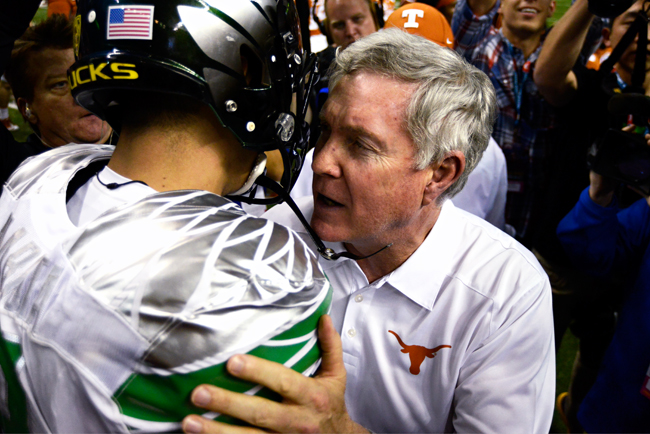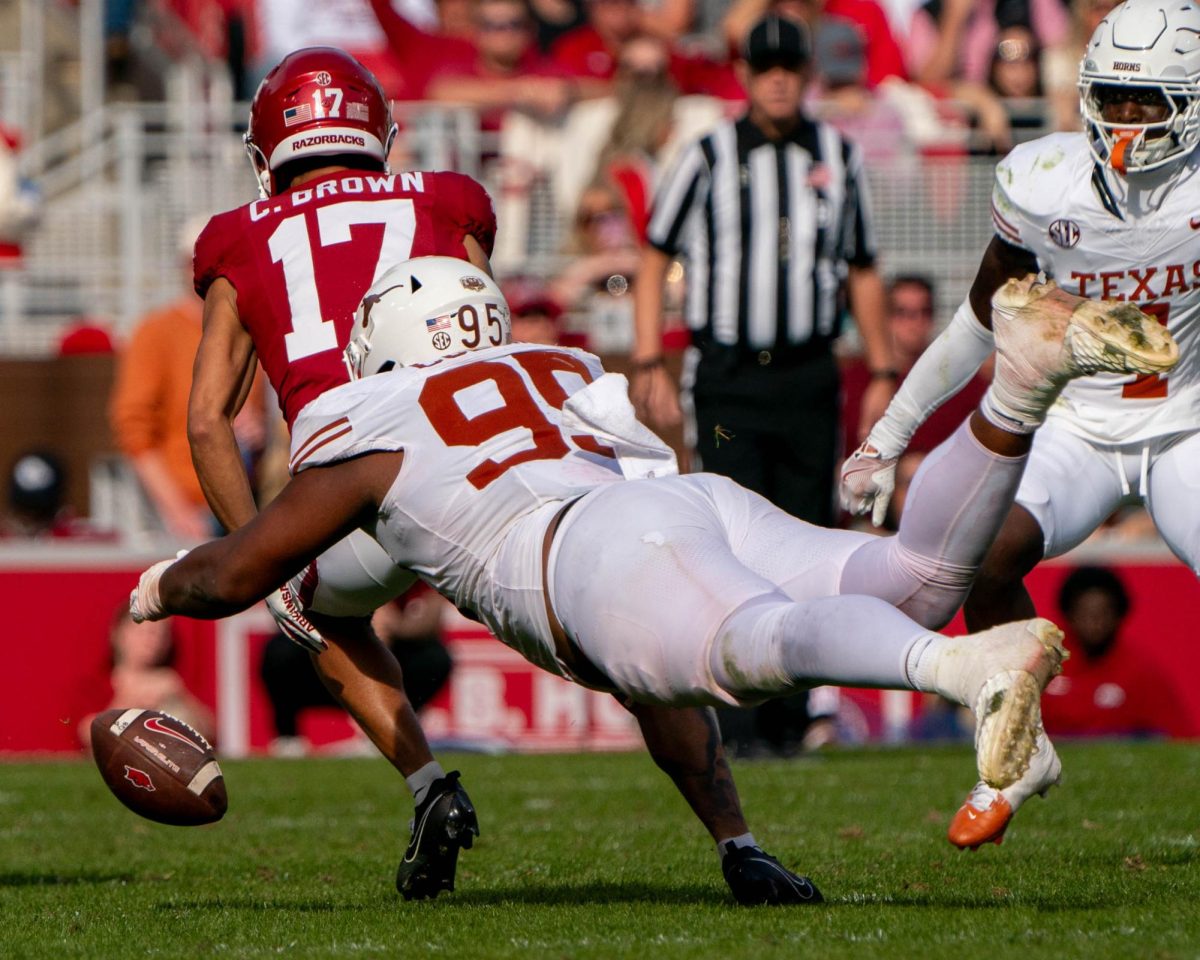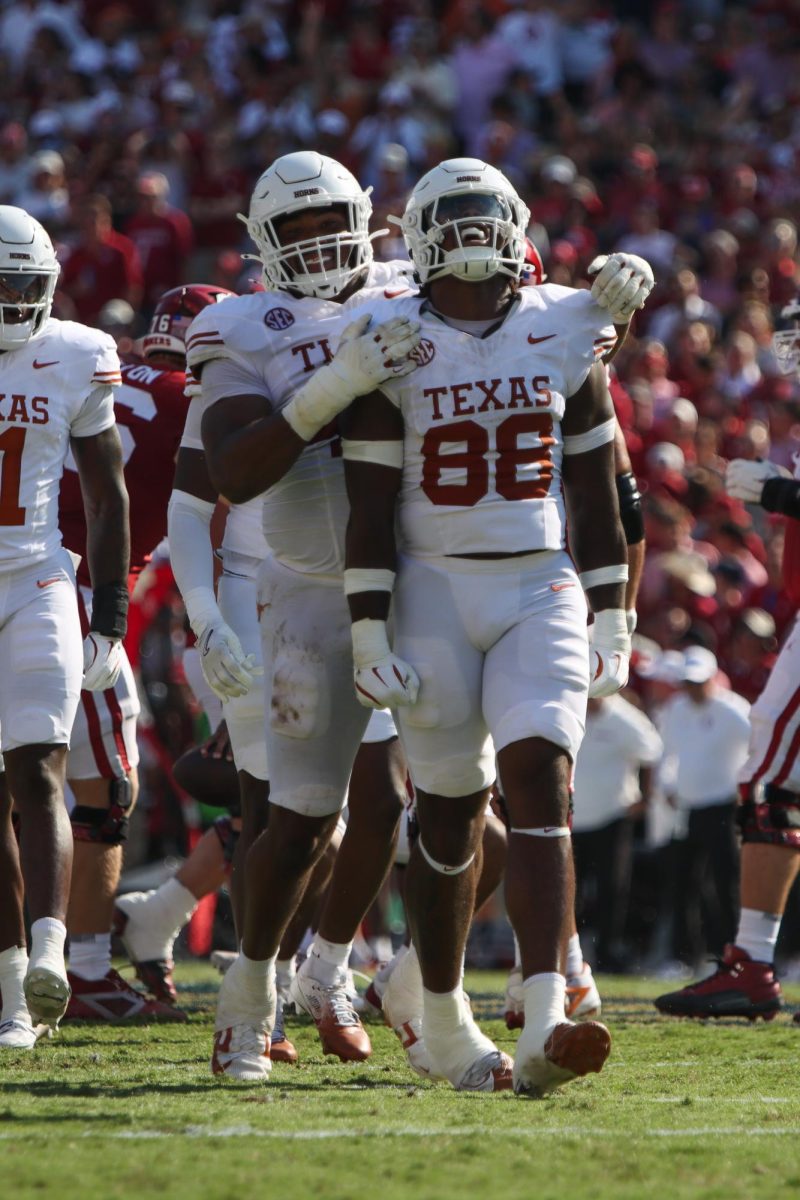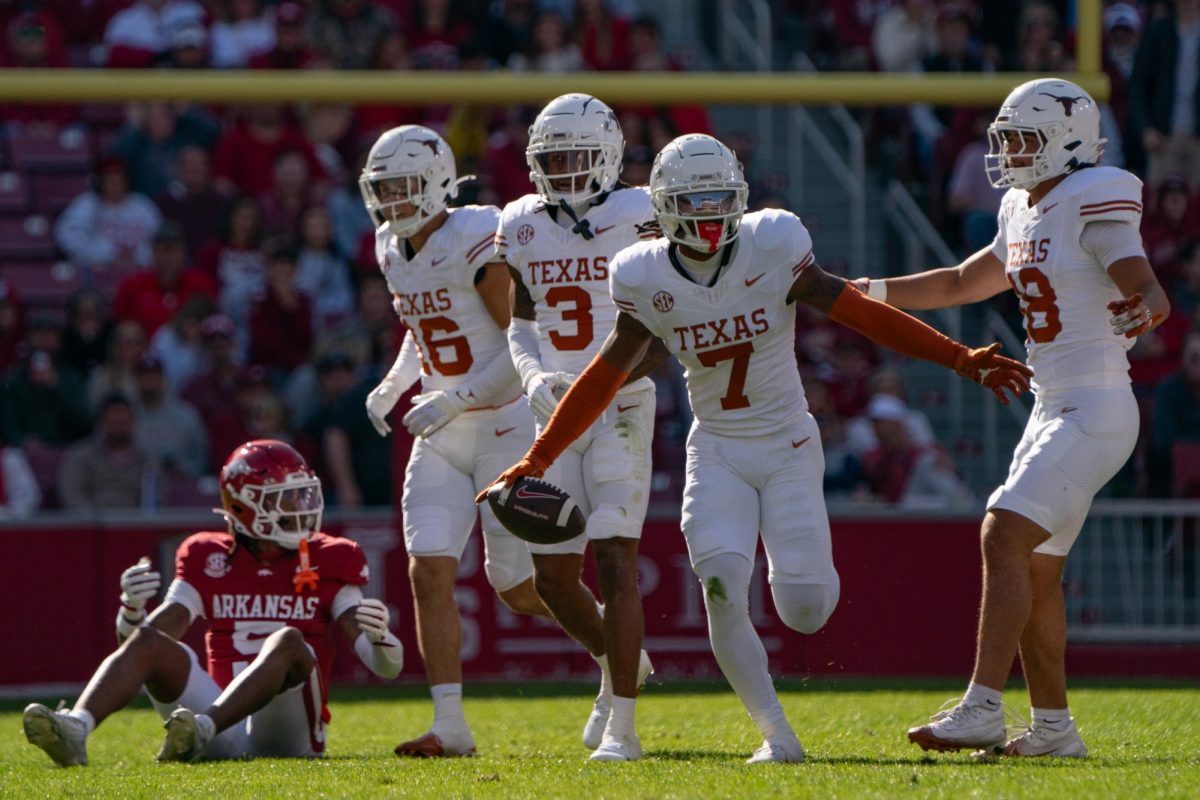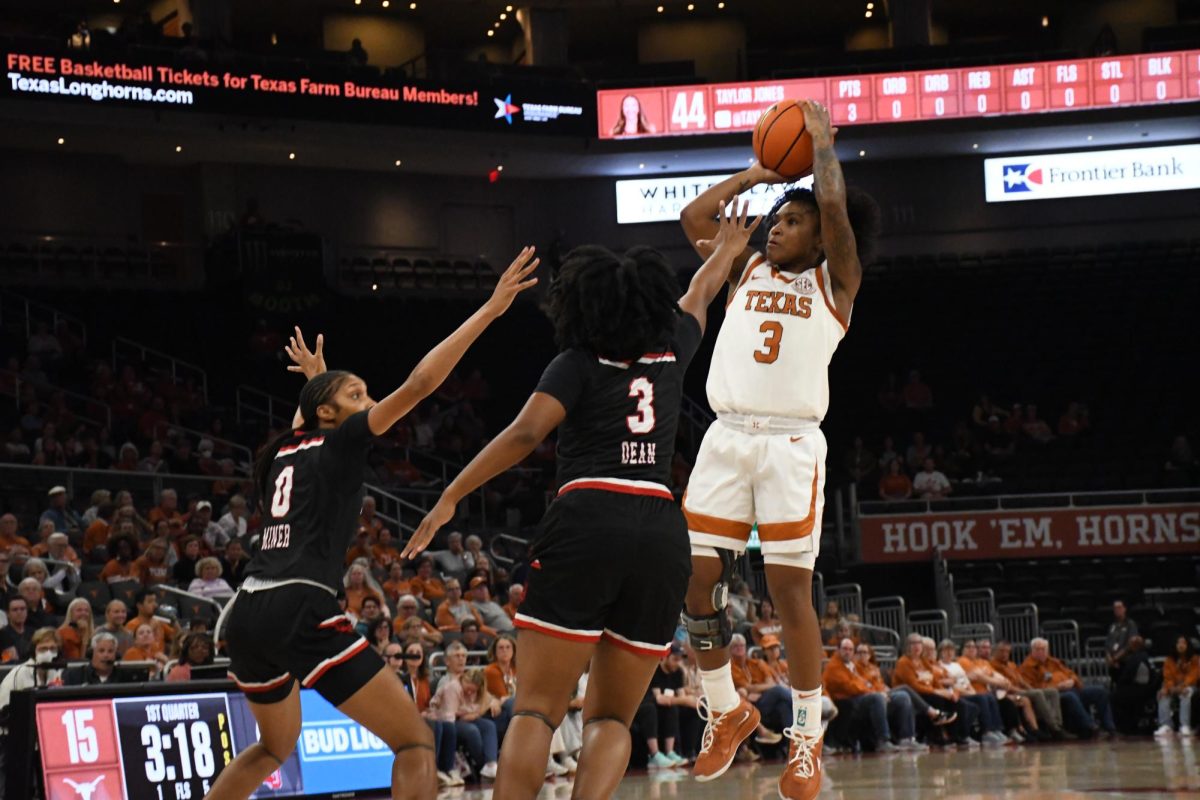It didn’t take long for people to start fawning over former head coach Mack Brown.
Mere hours after Brown announced he was stepping down in December, social media exploded with colleagues, former players, media members and fans singing Mr. Football’s praises.
“As class acts go, Mack Brown belongs on the front row of the team photo,” ESPN’s Gene Wojciechowski tweeted. “In time, even his critics will appreciate how good of a coach he is.”
“Words won’t do justice for what coach Brown was to UT and its program,” former Texas defensive tackle Frank Okam said. “His legacy won’t be measured in wins but the lives he touched.”
Okam’s comments are a reflection of the trend that followed Brown’s resignation. Everybody wanted to talk about the coach’s impact off the field — and rightfully so. The Tennessee native led the Texas football program just how one would expect a southern gentleman to do so — with class. In his 16 years at Texas, the football program rarely ever had to deal with controversy, and, when it did, Brown always knew what to say.
But head football coaches don’t get paid for the impact they make off the field, they get paid based on the success their team has on it. And Brown, who for a portion of his tenure at Texas was the highest paid coach in the country, often failed to live up to the high expectations that come with such a title.
Brown led Texas to two national title games, winning one of the school’s four crystal balls in the process. But aside from that, his resume was less than stellar.
Other than the two years in which he led his bunch to Pasadena for the national championship game, Brown has no championships to speak of. Those title years brought Texas its only two conference crowns of Brown’s tenure.
Oklahoma head coach Bob Stoops, who arrived in Norman a year after Brown came to Austin, has led the Sooners to eight Big 12 Championships. Kansas State’s Bill Snyder has won the conference title twice, equal to Brown’s total, but for far less money and with much less talent.
While Brown’s overall record at Texas is padded with blowout victories over weak non-conference opponents and perennial Big 12 cellar dwellers, his record in big games was not so impressive. Coach February — as rival fans call him because of the stellar recruiting classes he would sign to Texas every February — had 34 wins and 31 losses against ranked opponents over the course of his tenure, including a 2-2 record in conference championship games and a mere seven wins in 16 attempts against Oklahoma in the annual Red River Rivalry game.
Brown, the personality, will always be remembered as a nice guy who did things the right way. But Brown, the football coach, leaves behind a legacy comprised of equal parts success, frustration and disappointment.

